-
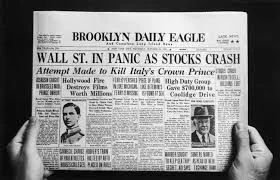 The Stock market Crash in 1929 effected many people it caused people to lose their jobs and lose a way of earning money. It hurt peoples credit and overproduction was very heavy.
The Stock market Crash in 1929 effected many people it caused people to lose their jobs and lose a way of earning money. It hurt peoples credit and overproduction was very heavy. -
 These were caused by what was after the stock market Crash. This caused widespread bank crashes everywhere. This caused many people to take their money out of banks and maybe even lose money.
These were caused by what was after the stock market Crash. This caused widespread bank crashes everywhere. This caused many people to take their money out of banks and maybe even lose money. -
 The Smoot Hawley tariff was to protect peoples goods and American businesses and farmers. This was to protect them from foreign competition in the great depression. But this backfired and retaliated with other countries and tariffs.
The Smoot Hawley tariff was to protect peoples goods and American businesses and farmers. This was to protect them from foreign competition in the great depression. But this backfired and retaliated with other countries and tariffs. -
 Hoovervilles were shantytowns that were make shifted. These were for homeless people during the great depression in America. These were made out of just things they could find.
Hoovervilles were shantytowns that were make shifted. These were for homeless people during the great depression in America. These were made out of just things they could find. -
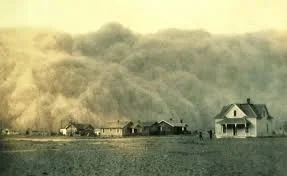 This was a economic crisis in the great plains. This had severe droughts and bad farming practices. Massive dust storms and widespread agricultural collapses happened resulting in massive devastation.
This was a economic crisis in the great plains. This had severe droughts and bad farming practices. Massive dust storms and widespread agricultural collapses happened resulting in massive devastation. -
 The Scottsboro Boys were nine African American male teenagers accused of raping two white women in 1931. The set of legal cases from this incident dealt with racism and the right to a fair trial. Some of them were guilty and some were found innocent.
The Scottsboro Boys were nine African American male teenagers accused of raping two white women in 1931. The set of legal cases from this incident dealt with racism and the right to a fair trial. Some of them were guilty and some were found innocent. -
 The bonus Army was a movement where many families, farmers, and world war veterans marched in Washington DC to try to get immediate payment of what the war payment they had been promised.
The bonus Army was a movement where many families, farmers, and world war veterans marched in Washington DC to try to get immediate payment of what the war payment they had been promised. -
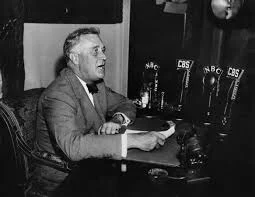 This was a way for FDR to talk to the people on the radio. It was to address the citizens and people about the baking crisis that was happening. This actually worked and helped overcome the depression.
This was a way for FDR to talk to the people on the radio. It was to address the citizens and people about the baking crisis that was happening. This actually worked and helped overcome the depression. -
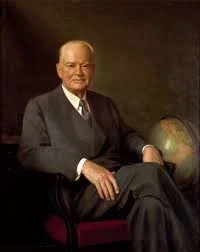 He was widely known for trying to combat the great depression. He did things to like the agricultural act of 1929. He also did programs to stimulate the economy. His presidency was overshadowed by the economic problems.
He was widely known for trying to combat the great depression. He did things to like the agricultural act of 1929. He also did programs to stimulate the economy. His presidency was overshadowed by the economic problems. -
 The national bank Holiday was to restore the public confidence and to halt bank failures during the great depression. This just temporarily suspended all bank transactions.
The national bank Holiday was to restore the public confidence and to halt bank failures during the great depression. This just temporarily suspended all bank transactions. -
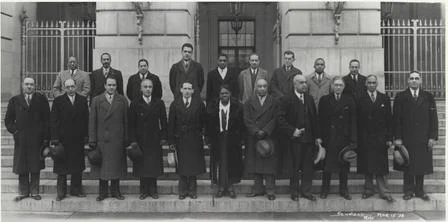 The "Black Cabinet" was a term used by people to describe an unofficial group of African American people who advised FDR. the huge influence that Harry Hopkins and Harold Ickes had on FDR's decisions that he made.
The "Black Cabinet" was a term used by people to describe an unofficial group of African American people who advised FDR. the huge influence that Harry Hopkins and Harold Ickes had on FDR's decisions that he made. -
 The FDIC aimed to restore the confidence in the banking system viewed by the public. This provided a deposit insurance This guaranteed people a certain amount of money even if something happened and there was a bank failure.
The FDIC aimed to restore the confidence in the banking system viewed by the public. This provided a deposit insurance This guaranteed people a certain amount of money even if something happened and there was a bank failure. -
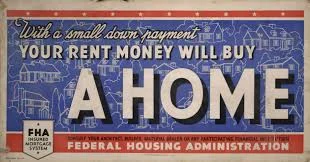 The National Housing Act was in 1934 it was a piece of New Deal legislation that established the Federal Housing Administration (FHA) to stabilize the housing market and promote home ownership for people during the Great Depression.
The National Housing Act was in 1934 it was a piece of New Deal legislation that established the Federal Housing Administration (FHA) to stabilize the housing market and promote home ownership for people during the Great Depression. -
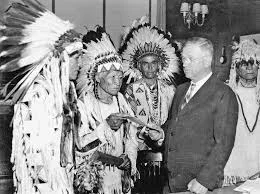 The Indian Reorganization Act (IRA) in 1934 was a US federal law that reversed policies of forced assimilation by ending the allotment of tribal lands and allowing for tribal self-government and land to be restored. It provided support for tribes also.
The Indian Reorganization Act (IRA) in 1934 was a US federal law that reversed policies of forced assimilation by ending the allotment of tribal lands and allowing for tribal self-government and land to be restored. It provided support for tribes also. -
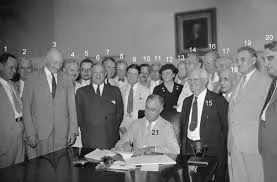 The social security act was basically a place of structure of security during the great depression. This created welfare programs and social insurance. This helped many people with things they needed and stuff to do by funds from payroll taxes. This act shifted responsibility for social welfare.
The social security act was basically a place of structure of security during the great depression. This created welfare programs and social insurance. This helped many people with things they needed and stuff to do by funds from payroll taxes. This act shifted responsibility for social welfare. -
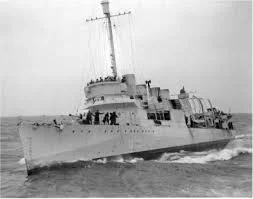 The Destroyers-for-Bases Agreement was a 1940 deal in which the United States provided Britain with fifty obsolete World War I destroyers in exchange for 99-year leases on various British territories.
The Destroyers-for-Bases Agreement was a 1940 deal in which the United States provided Britain with fifty obsolete World War I destroyers in exchange for 99-year leases on various British territories. -
 His presidency had may new deal recovery reforms. These went by reileif, recovery, and reform. His presidency created lasting things like the social security act that helped American politics and led massive war efforts which in the end helped us tremendously through his presidency.
His presidency had may new deal recovery reforms. These went by reileif, recovery, and reform. His presidency created lasting things like the social security act that helped American politics and led massive war efforts which in the end helped us tremendously through his presidency.